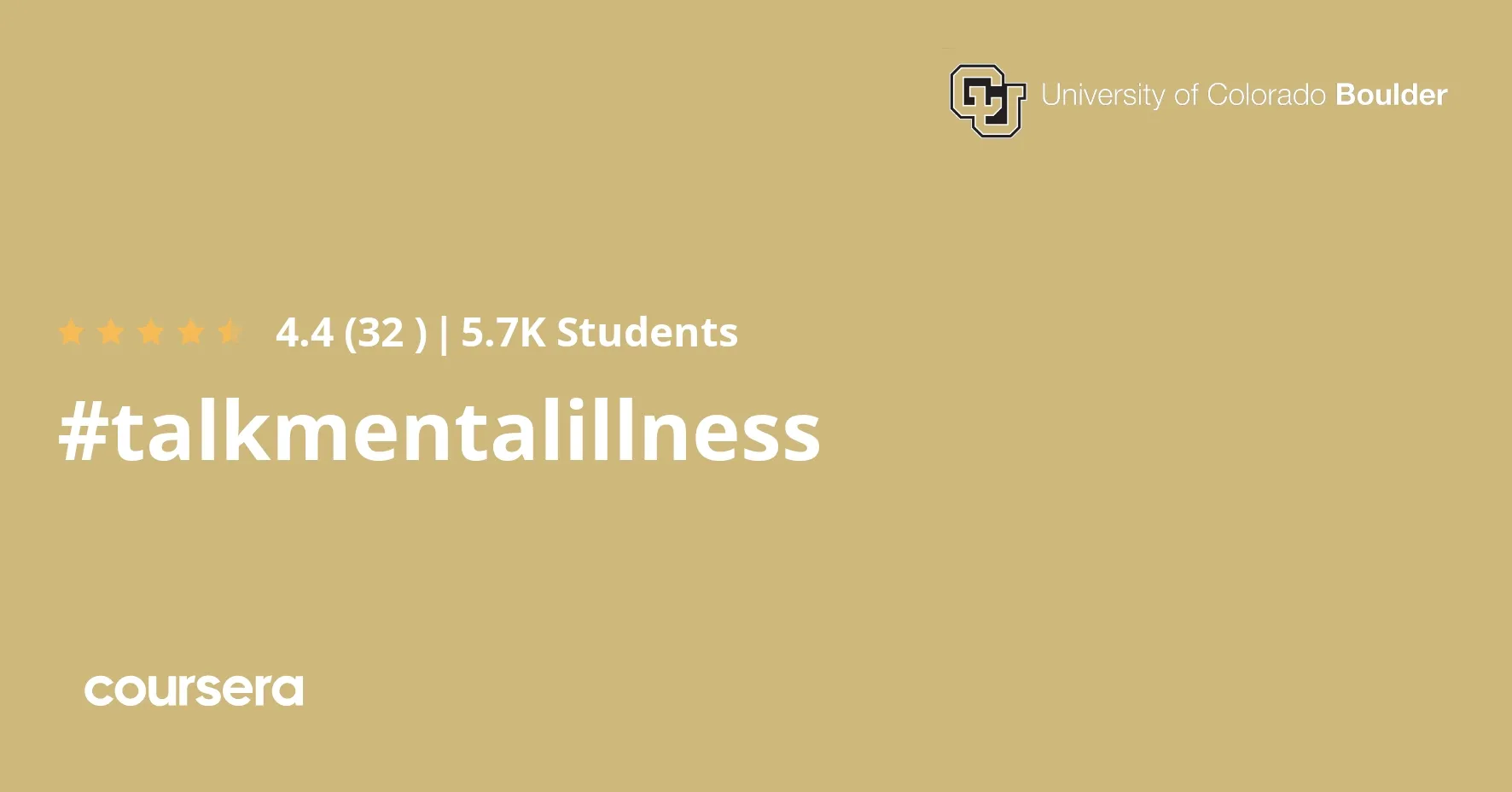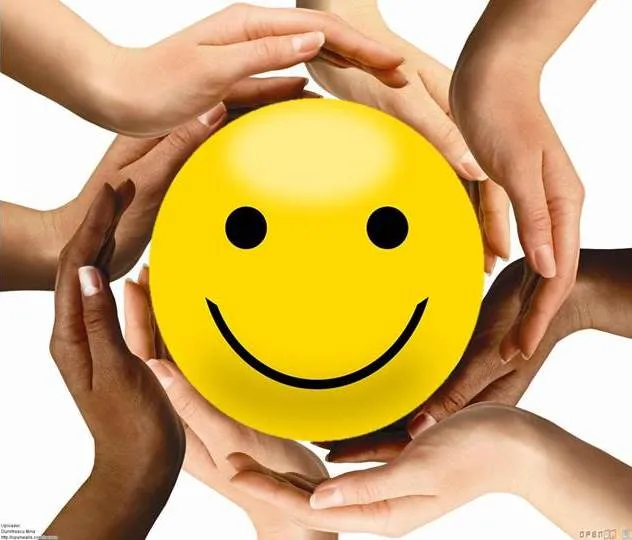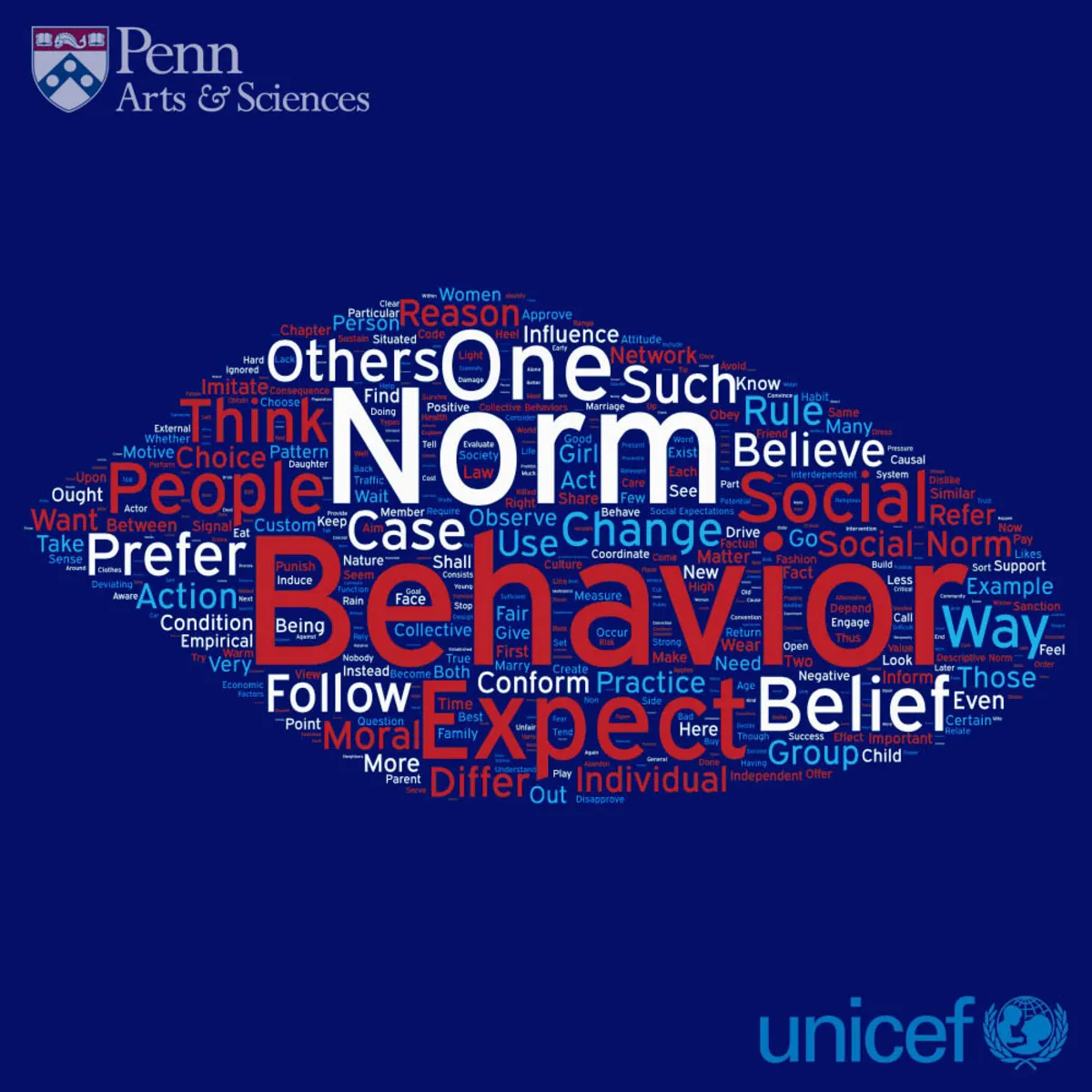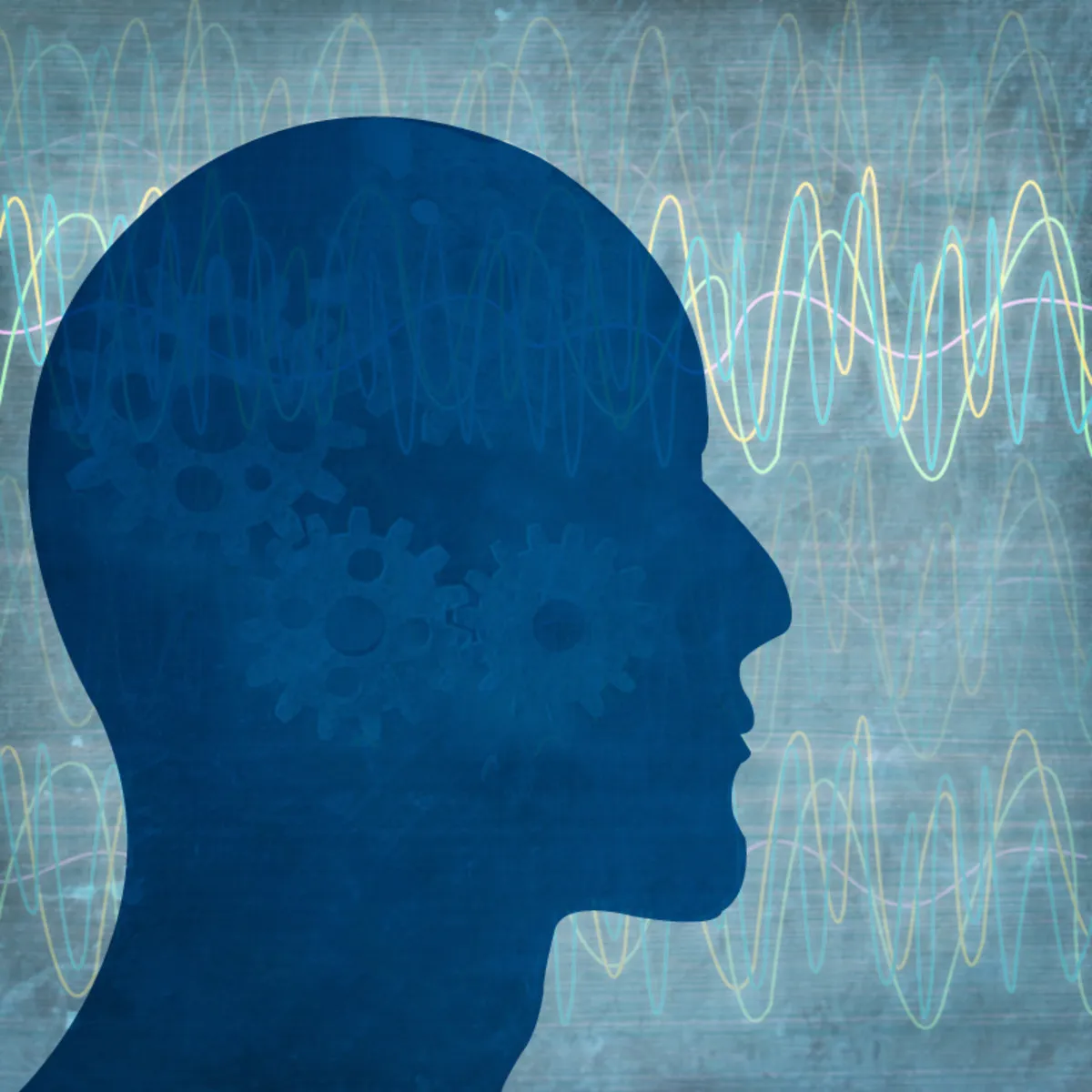
#talkmentalillness 
This course, developed in collaboration between the University of Colorado Boulder's Office for Academic Innovation and Libraries' Media Services Team, provides students and the public with an educational opportunity to learn about the science of mental illness on a local and global scale. #talkmentalillness ▼
ADVERTISEMENT
Course Feature
![]() Cost:
Cost:
Free
![]() Provider:
Provider:
Coursera
![]() Certificate:
Certificate:
No Information
![]() Language:
Language:
English
Course Overview
❗The content presented here is sourced directly from Coursera platform. For comprehensive course details, including enrollment information, simply click on the 'Go to class' link on our website.
Updated in [March 06th, 2023]
#talkmentalillness is a course designed to help students understand the complexities of mental illness and its stigma. Through this course, students will gain an understanding of common psychological disorders and their treatments, as well as the connection between racism, systemic inequality, and mental health treatment. Additionally, students will learn how to apply happiness science to their own lives.
The course begins with an introduction to mental illness and its stigma, including the history of mental health treatment and the current state of mental health care. Students will learn about the various types of mental illness, including depression, anxiety, bipolar disorder, and schizophrenia. They will also explore the various treatments available for mental illness, such as psychotherapy, medication, and lifestyle changes.
The course will then focus on the connection between racism, systemic inequality, and mental health treatment. Students will learn about the disparities in mental health care between different racial and ethnic groups, as well as the impact of racism on mental health. They will also explore the ways in which systemic inequality can lead to mental health issues.
Finally, the course will focus on happiness science and how it can be applied to one’s own life. Students will learn about the science of happiness, including the importance of positive thinking, gratitude, and self-care. They will also explore the various ways in which happiness science can be used to improve mental health and overall wellbeing.
At the end of the course, students will have a better understanding of mental illness and its stigma, as well as the connection between racism, systemic inequality, and mental health treatment. They will also have the tools to apply happiness science to their own lives.
[Applications]
The application of this course is to help individuals become more aware of mental illness and its stigma, as well as to understand common psychological disorders and their treatments. Additionally, individuals can learn to recognize the connection between racism, systemic inequality, and mental health treatment. Finally, individuals can apply the principles of happiness science to their own lives.
[Career Paths]
1. Mental Health Counselor: Mental health counselors provide counseling and therapy to individuals, couples, families, and groups who are struggling with mental health issues. They help clients identify and address their mental health issues, develop coping strategies, and work towards achieving their goals. Mental health counselors are in high demand due to the increasing prevalence of mental health issues in society.
2. Mental Health Advocate: Mental health advocates work to reduce the stigma associated with mental illness and to increase access to mental health services. They work to educate the public about mental health issues, advocate for policy changes, and provide support to those affected by mental illness. Mental health advocacy is a growing field, and advocates are needed to help ensure that everyone has access to the mental health care they need.
3. Mental Health Educator: Mental health educators work to increase public awareness and understanding of mental health issues. They provide educational materials and resources to the public, teach classes on mental health topics, and work to reduce the stigma associated with mental illness. Mental health educators are in high demand as more people become aware of the importance of mental health and the need for better access to mental health services.
4. Mental Health Researcher: Mental health researchers study the causes, effects, and treatments of mental illness. They conduct research to better understand mental health issues and develop new treatments and interventions. Mental health research is a growing field, and researchers are needed to help advance our understanding of mental health and develop new treatments and interventions.
[Education Paths]
1. Psychology Degree: A psychology degree is a great way to gain an understanding of mental health and its associated issues. This degree will provide students with the knowledge and skills to understand the causes and treatments of mental illness, as well as the social and cultural factors that can influence mental health. Additionally, students will learn about the various psychological theories and research methods used to study mental health. With the increasing prevalence of mental health issues, the demand for qualified professionals in this field is growing, making a psychology degree a great choice for those looking to pursue a career in mental health.
2. Social Work Degree: A social work degree is another great option for those looking to pursue a career in mental health. This degree will provide students with the knowledge and skills to understand the social and cultural factors that can influence mental health, as well as the various psychological theories and research methods used to study mental health. Additionally, students will learn about the various interventions and treatments available for mental health issues, as well as the ethical and legal considerations associated with mental health treatment.
3. Public Health Degree: A public health degree is a great way to gain an understanding of the social and cultural factors that can influence mental health. This degree will provide students with the knowledge and skills to understand the various psychological theories and research methods used to study mental health, as well as the various interventions and treatments available for mental health issues. Additionally, students will learn about the ethical and legal considerations associated with mental health treatment, as well as the public health policies and programs that can be used to address mental health issues.
4. Neuroscience Degree: A neuroscience degree is a great way to gain an understanding of the biological and physiological factors that can influence mental health. This degree will provide students with the knowledge and skills to understand the various psychological theories and research methods used to study mental health, as well as the various interventions and treatments available for mental health issues. Additionally, students will learn about the ethical and legal considerations associated with mental health treatment, as well as the neuroscience research methods used to study the brain and its associated disorders. With the increasing prevalence of mental health issues, the demand for qualified professionals in this field is growing, making a neuroscience degree a great choice for those looking to pursue a career in mental health.
Course Syllabus
Stephen Hinhsaw on stigma and mental illness
Temple Grandin on autism
Kay Refield Jamison on bipolar disorder
Gordon Nagayma Hall on culture and mental health
Mitchell Prinstein on communicating mental health to the public
Aaron Fisher on precision behavioral health
Course Provider

Provider Coursera's Stats at AZClass
Discussion and Reviews
0.0 (Based on 0 reviews)
Explore Similar Online Courses

Granny Square Crochet: Make Your Own Sweater

Introduction to AI for Business

Python for Informatics: Exploring Information

Social Network Analysis

Introduction to Systematic Review and Meta-Analysis

The Analytics Edge

DCO042 - Python For Informatics

Causal Diagrams: Draw Your Assumptions Before Your Conclusions

Whole genome sequencing of bacterial genomes - tools and applications

A Life of Happiness and Fulfillment

Social Norms Social Change II

Introduction to Self-Determination Theory: An approach to motivation development and wellness
 Related Categories
Related Categories
 Popular Providers
Popular Providers
Quiz
 Submitted Sucessfully
Submitted Sucessfully
1. What is the main goal of the #talkmentalillness course?
2. What is the primary focus of the #talkmentalillness course?
3. What is NOT a goal of the #talkmentalillness course?
4. What is the goal of the #talkmentalillness course?
Correct Answer: To be able to discuss mental illness and its stigma, as well as describe common psychological disorders and their treatments, explain the connection between racism, systemic inequality, and mental health treatment, and apply happiness science to one's own life.


Start your review of #talkmentalillness